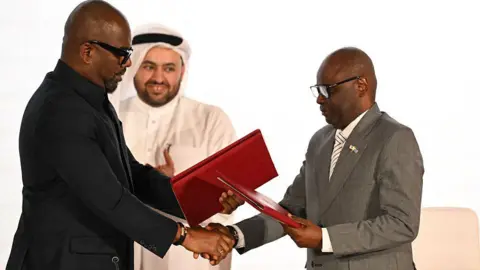South Africa has reaffirmed its commitment to pursuing a trade agreement with the United States, clarifying that it is not “anti-American” despite being a member of the BRICS bloc a group of major emerging economies that includes Brazil, Russia, India, China, and South Africa. The statement comes in response to comments made by former U.S. President Donald Trump, who on Sunday threatened to impose an additional 10% tariff on countries aligned with the BRICS grouping, accusing them of harboring policies hostile to American interests.
The South African Department of Trade, Industry and Competition responded swiftly, emphasizing the nation’s continued interest in deepening economic ties with the U.S., despite geopolitical tensions. “We are not anti-American,” a trade ministry spokesperson stated. “We remain open to constructive engagement and are still seeking a trade agreement with the U.S.”
Trump’s remarks coincided with the BRICS summit being held in Brazil, where member states discussed ways to expand cooperation, promote multipolarity in global governance, and reduce reliance on the U.S. dollar in trade settlements. While the BRICS bloc has increasingly positioned itself as a counterbalance to Western-dominated financial institutions, South Africa says its engagement with BRICS does not undermine its bilateral relations with the U.S.
President Cyril Ramaphosa visited the White House in May for talks with Trump during his presidency, and South Africa has been pushing for an expanded trade framework since then. Talks have centered around enhancing South Africa’s access to the U.S. market, especially through trade provisions that go beyond the African Growth and Opportunity Act (AGOA), which expires in 2025.
“We still await formal communication from the U.S. in respect of our trade deal, but our conversations remain constructive,” the spokesperson added.
As global trade alliances shift and the geopolitical landscape becomes more complex, South Africa’s balanced approach, maintaining ties with both the Global South and Western partners, reflects its broader strategy to protect national interests while engaging all major global players.














Leave a comment